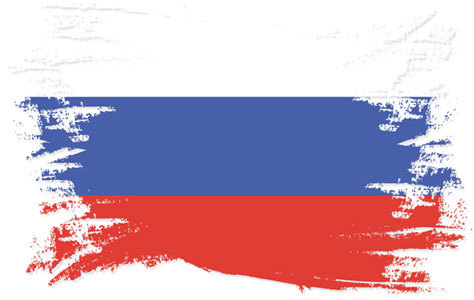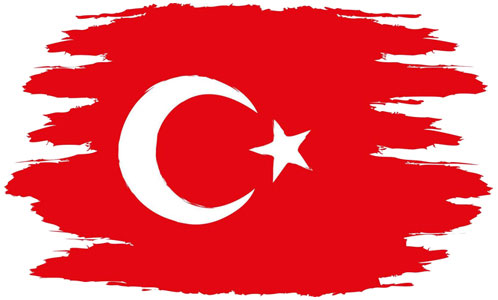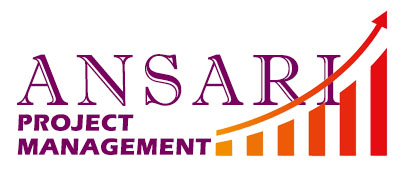1. Why are more and more people in Turkey and East European countries studying real Islam and showing interest in the Holy Quran?
One possible answer is that people are seeking a deeper understanding of their faith and a connection to
their cultural and historical roots. Additionally, there may be a growing desire to counter misconceptions and stereotypes about Islam.
2. What cultural and ethnic similarities can be found between Turkey, East European countries, and truly peaceful Islam?
Similarities may include a strong emphasis on family values, hospitality, respect for elders, and a sense of community. Both Islam and these cultures prioritize unity, harmony, and social justice.
3. How can studying the Holy Quran enhance the lives of individuals in these regions?
Studying the Holy Quran can provide individuals with a strong moral compass and guidance in their everyday lives. It teaches principles of compassion, honesty, and integrity, which can lead to personal growth and fulfillment.
4. In what ways can the Holy Quran help establish a more peaceful and happy life for individuals in these regions?
5. What specific societal, economic, cultural, personal, or environmental challenges do people in these regions face?
Challenges may include rising economic inequality, political instability, cultural assimilation, social polarization, mental health issues, environmental degradation, and lack of access to quality education.
6. How can Islam and the Quran provide solutions for these challenges?
Islam places great importance on economic justice and the redistribution of wealth, which can address economic inequality. The Quran also emphasizes the need for good governance and justice, helping to combat political instability. Moreover, Islamic teachings promote inclusivity and respect for cultural diversity, countering issues of assimilation and social polarization. The Quran provides guidance on personal growth, mental well-being, and ethics. Lastly,
it calls for the protection of the environment, encouraging sustainability and conservation efforts.
7. How can the Quran inspire individuals to actively address societal challenges?
The Quran teaches individuals to have concern for those in need and to work for the betterment of society. By studying the Quran, individuals can gain a deeper understanding of their responsibilities as Muslims and be motivated to actively engage in initiatives that tackle societal challenges.
8. Can the Quran contribute to gender equality and women's empowerment in these regions?
Yes, the Quran promotes equality between men and women, emphasizes the importance of education for both genders, and calls for justice in all aspects of life. Studying the Quran can help challenge patriarchal norms and empower women to pursue their aspirations while being true to their faith.
9. How can the Quran inspire interfaith dialogue and promote religious tolerance in these regions?
The Quran teaches respect for people of different faiths and encourages dialogue based on mutual understanding and respect. By studying the Quran, individuals can gain a deeper appreciation for religious diversity, fostering tolerance and harmony within their communities.
10. Can studying the Quran foster a sense of identity and pride among individuals in these regions?
Yes, studying the Quran can provide individuals with
a stronger connection to their cultural and religious heritage, reinforcing their sense of identity. It can also inspire feelings of pride in the rich intellectual and artistic contributions of Islamic civilizations throughout history.

The Quran emphasizes preserving and protecting the environment as trustees of the Earth
11. How can the Quran promote environmental stewardship in these regions?
The Quran emphasizes the importance of preserving and protecting the environment as trustees of the Earth. By studying the Quran, individuals can be motivated to adopt sustainable practices, promote conservation efforts, and address environmental challenges such as pollution and deforestation.
12. Can the Quran offer guidance on ethical business practices and economic development?
Yes, the Quran provides principles for fair trade, ethical
business dealings, and wealth distribution. By applying these teachings, individuals can contribute to an economy built on justice, integrity, and the well-being of society as a whole.
13. How can the Quran contribute to the education sector in these regions?
The Quran emphasizes the importance of seeking knowledge, and Islamic civilizations have a rich history of education and intellectual pursuits. By studying the Quran, individuals can appreciate the value of education and work towards improving educational systems in their communities.
14. Can the Quran help individuals address mental health issues prevalent in these regions?
Yes, the Quran provides guidance on maintaining emotional well-being, finding solace in faith, and seeking counseling when needed. By studying the Quran, individuals can gain insights and tools to address mental health challenges, reduce stigma, and promote a supportive environment.
15. How can the Quran be used to promote social justice and human rights in these regions?
The Quran upholds the values of justice, equity,
and human dignity. By studying the Quran, individuals can better advocate for social justice, challenge discrimination, and uphold the rights of marginalized groups within their communities.
16. Can the Quran help individuals combat extremism and radicalization in these regions?
Yes, the Quran emphasizes moderation, peace, and the rejection of extremism. Through studying the Quran, individuals can gain a deeper understanding of their faith, which can serve as a counter-narrative to extremist ideologies.
17. How can the Quran contribute to fostering a sense of unity and solidarity among diverse communities in these regions?
The Quran promotes unity among Muslims and emphasizes the importance of cooperation and respect among people of different backgrounds. By studying the Quran, individuals can foster a stronger sense of solidarity within their communities, transcending divisions based on ethnicity, nationality, or social status.
18. Can the Quran provide guidance on responsible and sustainable consumption in these regions?
Yes, the Quran teaches moderation, self-restraint, and the avoidance of wastefulness. By studying the Quran, individuals can develop a conscious approach to consumption, which
is essential for addressing issues such as consumerism, overproduction, and waste management.
19. How can the Quran inspire individuals to actively engage in community service and volunteerism?
The Quran emphasizes the importance of helping those in need and emphasizes the value of community service. By studying the Quran, individuals can be motivated to actively contribute to their communities, giving back through volunteer work and charitable initiatives.
20. Can the Quran help individuals find spiritual fulfillment and purpose in these regions?
Yes, the Quran offers spiritual guidance, encouraging individuals to develop a deep connection with their Creator and find purpose in serving humanity. By studying the Quran, individuals can
strengthen their spirituality and experience a sense of fulfillment and contentment in their lives.

The Quran provides guidance on family values, respect, and maintaining healthy relationships
21. How can the Quran inspire individuals to become agents of positive change in their societies?
The Quran emphasizes the importance of taking action and being proactive in shaping a better world. By studying the Quran, individuals can be inspired
to initiate positive change, tackle social problems, and contribute to a more just and peaceful society.
22. Can the Quran contribute to the preservation and promotion of traditional arts and cultural heritage in these regions?
Yes, the Quran has historically played a significant role in influencing various art forms, including calligraphy, architecture, music, and literature. By studying the Quran, individuals can develop an appreciation for their cultural heritage and work towards preserving and promoting traditional arts in their communities.
23. How can the Quran help individuals strengthen their family bonds and maintain healthy relationships?
The Quran provides guidance on family values, respect, and maintaining healthy relationships. By studying the Quran, individuals can gain insights into
effective communication, conflict resolution, and nurturing strong family bonds.
24. Can the Quran contribute to the promotion of peace and reconciliation in conflict-affected areas of these regions?
Yes, the Quran emphasizes forgiveness, reconciliation, and the importance of resolving conflicts peacefully. By studying the Quran, individuals can be motivated to work towards peacebuilding, advocating for dialogue and understanding in conflict-affected areas.
25. How can the Quran help individuals navigate the challenges of modernity while maintaining their cultural and religious identity?
The Quran provides timeless principles and values that can guide individuals through the complexities of modern life. By studying the Quran, individuals can balance the demands of the modern world while remaining rooted in their cultural and religious
identity.
26. Can the Quran inspire individuals to become active citizens and contribute to the development of their societies?
Yes, Islamic teachings promote civic engagement, honesty, and responsibility towards the broader society. By studying the Quran, individuals can develop a sense of civic duty, actively participate in community initiatives, and contribute to the overall development of their societies.
27. How can the Quran contribute to promoting ethical media practices in these regions?
The Quran emphasizes the importance of truthfulness, avoiding gossip, and verifying information before dissemination. By studying the Quran, individuals can develop media literacy and actively work towards promoting ethical journalism and responsible media practices.
28. Can the Quran inspire individuals to become advocates for climate change mitigation and environmental conservation?
Yes, the Quran teaches individuals that they are stewards of the Earth and have a responsibility to protect the environment.
By studying the Quran, individuals can develop a sense of urgency towards addressing climate change, promoting renewable energy, and adopting sustainable practices.
29. How can the Quran inspire individuals to reject discrimination and promote inclusive societies?
The Quran promotes equity, justice, and respect for all people. By studying the Quran, individuals can develop an understanding of the value of diversity and actively work towards creating inclusive societies that embrace individuals of all backgrounds.
30. Can the Quran contribute to the promotion of a holistic and balanced approach to life in these regions?
Yes, the Quran encourages individuals to lead balanced lives, prioritizing their spiritual, physical, and emotional well-being. By studying the Quran, individuals can adopt
a holistic approach to life, seeking harmony between their personal, professional, and religious obligations.
Dear Visitor; Please take a look at the list of 50 most visited websites in the world wide web: YouTube, Facebook, google, translate, gmail, weather, amazon, Instagram, cricbuzz, Hotmail, wordle, satta king, twitter, yahoo, yandex, sarkari result, Netflix, google maps, yahoo mail, roblox, whatsapp, NBA, BBC news, outlook, pinterest, flipkart, eBay, omegle, live score, tiktok, canva, ipl, premier league, hava durumu, ibomma, walmart, twitch, ikea, shein, linkedin, home depot, e devlet, lottery, snaptik, cricket, serie a, nfl, spotify, fox news, amazon prime; There is no book publishing related or project management website in this list. We are working hard to bring these important issues to the center of concentration of societies. Please introduce us via social media, share our website with others and help us to make our world a better place to live. Best Regards.













Write your review